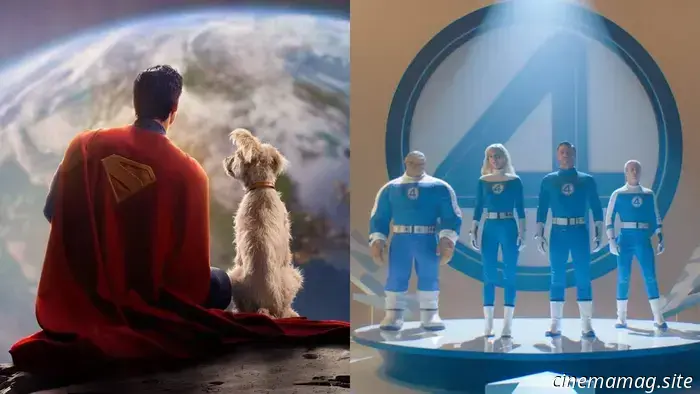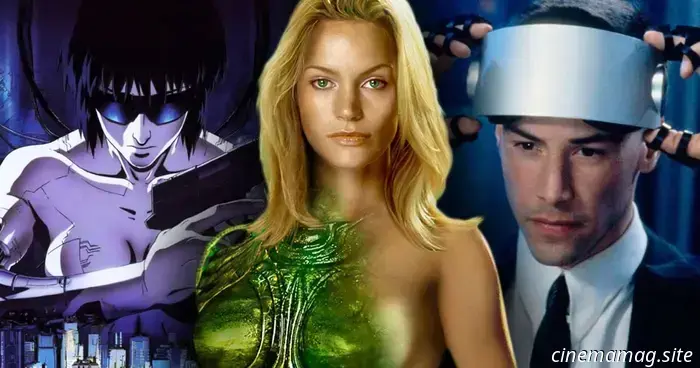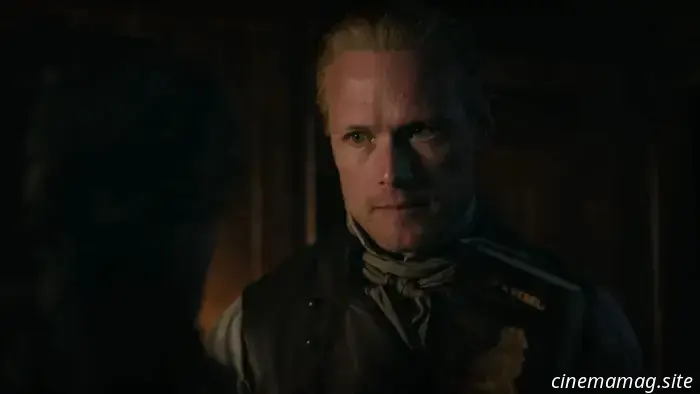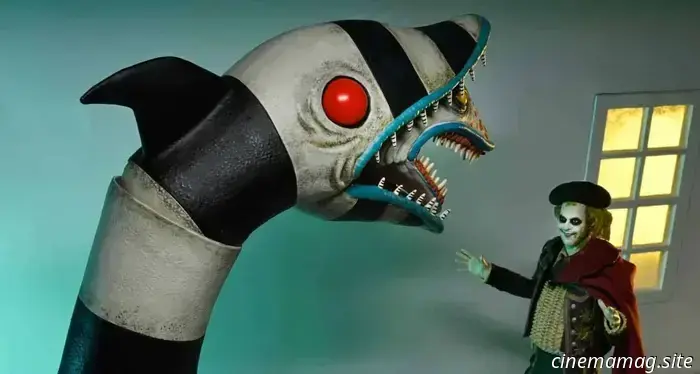
Superman and the Fantastic Four: Initial Moves that Rescued Comic Book Films — By Welcoming Comic Books
This summer might be the turning point for comic book movies: Superman and the new Fantastic Four: First Steps rejuvenate the fatigued comic book movie genre by doing something many films in this category have avoided: fully embracing comic books.
In the early days of adaptations, Hollywood seemed intent on separating comic book films from their original source. Although the first Superman was commendable, it brought in The Godfather’s writer and star — Mario Puzo and Marlon Brando — to enhance the narrative's weight. Tim Burton’s 1989 Batman effectively navigated the balance between the campy tone of the 1960s Batman and the serious approach of Frank Miller’s Dark Knight. Warren Beatty's 1990 Dick Tracy took bold steps toward comic accuracy, employing a limited color scheme reminiscent of classic comic strips.
However, as comic book movies gained dominance at the box office in the early 2000s, certain trends began to emerge. Films tended to stick to comic book lore while avoiding content that might alienate mainstream audiences—those unfamiliar with the source material.
The X-Men series illustrates this dual approach well; while having admirable traits, they dressed almost everyone in black leather, setting the films apart from the vibrant costumes of the comic book version, particularly from Chris Claremont's era. Christopher Nolan’s highly-regarded Dark Knight trilogy shunned superpowers, presenting us with a highly logical Batman whose costume details served practical, realistic purposes.
You can listen to our in-depth discussion on Superman on the Low Key Podcast available wherever you access podcasts, or here:
Iron Man was so grounded that I recall a friend telling me he took his wife to watch the 2008 film without explaining its premise. She believed they were viewing a war movie until Robert Downey Jr.'s Tony Stark first donned an early version of the Iron Man suit — thirty-five minutes in, she finally realized she had been tricked into a comic book film.
Zack Snyder’s superhero films underscored the notion that they were not intended for children: in 2013’s Man of Steel, Superman kills a villain, while grimness permeates every aspect. The low point came in 2016 with the dismal Batman v Superman: Dawn of Justice.
As the Marvel Cinematic Universe rose to prominence, MCU films sometimes embraced their goofy side, benefiting from it. The 2014 Guardians of the Galaxy, under passionate comic book fan James Gunn, delved deep into lesser-known MCU characters like a talking raccoon named Rocket. The following year, Paul Rudd starred in the playful and sharp Ant-Man, showcasing a thief-turned-hero who can shrink to the size of an ant and enlist ants in his justice crusade.
Nonetheless, most films still aimed for a middle ground. Some major Marvel features were genre films featuring superpowered individuals—Captain America: The Winter Soldier was a paranoia thriller in the ’70s vein, Thor: Ragnarok was a psychedelic sci-fi comedy, and Black Panther presented an Afrofuturist take on a Bond film.
When accurately depicted comic book costumes appeared in movies, they were often celebrated by hardcore fans, typically played for humor. Hugh Jackman’s comics-inspired blue and yellow outfit in last summer’s Deadpool and Wolverine served as a joke on various levels: seeing such a faithful representation onscreen seemed absurd, particularly for Wolverine, whose past film portrayals included surviving the Hiroshima bombing.
The Deadpool series are not just comic book films but rather parodies of them.
Sony’s 2018 Spider-Man: Into the Spiderverse excelled at honoring comic book narratives and history in a brilliant and beautiful manner. While I adore it, being animated might prevent it from ever achieving the same jaw-dropping realism as this summer's live-action superhero successes.
Superman and Fantastic Four: First Steps feel refreshingly novel in their live-action celebration of comic books. They are unapologetically comic book films, fully devoted to and respectful of their source material. Both have received positive reviews, with Superman already experiencing success, and Fantastic Four, which hits theaters this week, is projected to perform well, partly due to strong word-of-mouth from early viewers.
What makes Superman and Fantastic Four: First Steps special is that the "nerdy" elements are also the most enjoyable.
By "nerdy," we don't imply any negative connotation — we refer to the Oxford definition, which describes it as "characterized by great enthusiasm for and knowledge about a particular subject, especially one of niche interest."
Superman’s writer-director, James Gunn, came to lead DC Films through a series of complicated events that began with his temporary firing from the Guardians of the Galaxy franchise over humorous, controversial tweets. (Right-wing individuals, upset by his left-leaning politics, uncovered these tweets to tarnish his image.) Fortunately, wiser perspectives prevailed, allowing him to direct DC's 2021 The Suicide Squad, which impressed Warner Bros. executives enough that they entrusted



Other articles
 10 Must-See Sci-Fi Films from 1995
Tom Jolliffe from Flickering Myth revisits 1995 to share ten must-see sci-fi film suggestions. Sci-fi films provide a window into exciting futures, different realities, and beyond. While these prophetic visions don’t always materialize—2015 didn’t deliver flying cars or Jaws 19—it seems we're getting closer to that count with [...]
10 Must-See Sci-Fi Films from 1995
Tom Jolliffe from Flickering Myth revisits 1995 to share ten must-see sci-fi film suggestions. Sci-fi films provide a window into exciting futures, different realities, and beyond. While these prophetic visions don’t always materialize—2015 didn’t deliver flying cars or Jaws 19—it seems we're getting closer to that count with [...]
 The Comic-Con trailer for Outlander hints at the upcoming eighth and final season.
During the San Diego Comic-Con, Starz hosted a panel for its acclaimed series Outlander, featuring stars Sam Heughan, Sophie Skelton, and Richard Rankin, along with executive producers Matthew B. Roberts and Maril Davis. They, along with a video message from Caitríona Balfe, unveiled a trailer for the eighth and final season of Outlander that hints at Jamie […]
The Comic-Con trailer for Outlander hints at the upcoming eighth and final season.
During the San Diego Comic-Con, Starz hosted a panel for its acclaimed series Outlander, featuring stars Sam Heughan, Sophie Skelton, and Richard Rankin, along with executive producers Matthew B. Roberts and Maril Davis. They, along with a video message from Caitríona Balfe, unveiled a trailer for the eighth and final season of Outlander that hints at Jamie […]
 NECA reveals the Beetlejuice Ultimate Matador Beetlejuice & Sandworm 2-pack.
NECA has revealed that the Ultimate Matador Beetlejuice & Sandworm action figure 2-pack from the church scene in Tim Burton’s 2024 supernatural comedy sequel, Beetlejuice Beetlejuice, is now available for pre-order at a price of $84.99; you can check it out here… The Ghost with the Most returns! From Tim Burton’s sequel film, Beetlejuice Beetlejuice, the […]
NECA reveals the Beetlejuice Ultimate Matador Beetlejuice & Sandworm 2-pack.
NECA has revealed that the Ultimate Matador Beetlejuice & Sandworm action figure 2-pack from the church scene in Tim Burton’s 2024 supernatural comedy sequel, Beetlejuice Beetlejuice, is now available for pre-order at a price of $84.99; you can check it out here… The Ghost with the Most returns! From Tim Burton’s sequel film, Beetlejuice Beetlejuice, the […]
 Film producer Nathalie Zagar Abitbol discusses Alpha 27 - Exclusive Interview
Nathalie Zagar Abitbol is a producer and script supervisor who has always embraced a life filled with intention, passion, and curiosity. Raised in Mexico City by French parents, she grew up at the crossroads of various cultures, languages, and viewpoints, providing her with the remarkable chance to be immersed in diversity. She is fluent in French, Spanish, […]
Film producer Nathalie Zagar Abitbol discusses Alpha 27 - Exclusive Interview
Nathalie Zagar Abitbol is a producer and script supervisor who has always embraced a life filled with intention, passion, and curiosity. Raised in Mexico City by French parents, she grew up at the crossroads of various cultures, languages, and viewpoints, providing her with the remarkable chance to be immersed in diversity. She is fluent in French, Spanish, […]
 Isabelle Huppert Stars in Her First Solo Performance in Exclusive Trailer for Michael Rozek’s Marianne, to be Screened in New York on July 30.
Update: The New York premiere of Marianne is scheduled for July 30 at the Emily Harvey Foundation, with Michael Rozek participating in a Q&A session following the screening; tickets are complimentary and further details can be found here. Original story follows. With 50 years, over 150 films, and a remarkable lineup of directors, it seems clear that Isabelle Huppert has truly accomplished much.
Isabelle Huppert Stars in Her First Solo Performance in Exclusive Trailer for Michael Rozek’s Marianne, to be Screened in New York on July 30.
Update: The New York premiere of Marianne is scheduled for July 30 at the Emily Harvey Foundation, with Michael Rozek participating in a Q&A session following the screening; tickets are complimentary and further details can be found here. Original story follows. With 50 years, over 150 films, and a remarkable lineup of directors, it seems clear that Isabelle Huppert has truly accomplished much.
Superman and the Fantastic Four: Initial Moves that Rescued Comic Book Films — By Welcoming Comic Books
This could be the summer that revitalizes comic book films: Superman and the new Fantastic Four: First Steps inject fresh energy into the weary comic book movie landscape.
